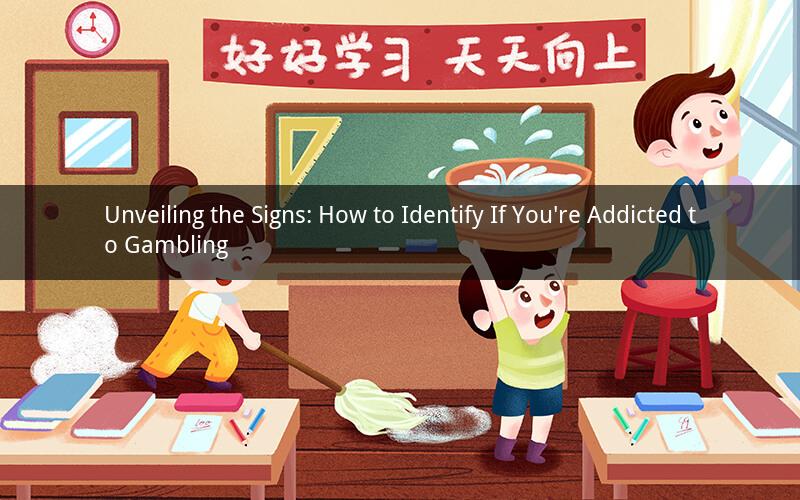
Gambling addiction is a significant issue that affects individuals from all walks of life. Recognizing the signs of addiction is crucial in seeking help and overcoming this problem. In this article, we will explore the key indicators that suggest you might be addicted to gambling and provide insights into how to address this issue effectively.
1. Financial Strain
One of the most apparent signs of gambling addiction is the financial strain it causes. If you find yourself constantly worrying about money, struggling to pay bills, or relying on loans or credit cards to cover your gambling debts, it's a clear indication that you might be addicted to gambling. Here are a few questions to consider:
Q1: Have you ever hidden your gambling activities from your family or friends to avoid financial consequences?
A1: If you have, it suggests that you're aware of the potential negative impact of your gambling habits on your financial stability.
Q2: Have you ever borrowed money to finance your gambling activities?
A2: Borrowing money to gamble is a sign of addiction, as it indicates that you're unable to control your spending.
Q3: Do you often find yourself in debt due to gambling?
A3: If you're constantly in debt, it's a strong indicator that you're struggling with a gambling addiction.
2. Time Spent on Gambling
Another sign of gambling addiction is the amount of time spent on gambling activities. If you find yourself preoccupied with thoughts of gambling, constantly seeking opportunities to gamble, or neglecting other responsibilities in your life, it's a red flag. Here are a few questions to ponder:
Q4: Have you ever lost track of time while gambling, only to realize hours have passed?
A4: If you often lose track of time while gambling, it's a sign that your addiction is taking over your life.
Q5: Have you ever skipped work or school to gamble?
A5: Skipping important responsibilities to indulge in gambling is a clear indication of addiction.
3. Emotional and Psychological Effects
Gambling addiction can have severe emotional and psychological effects on individuals. If you're experiencing mood swings, anxiety, depression, or other mental health issues due to your gambling habits, it's essential to seek help. Here are a few questions to reflect upon:
Q6: Have you ever felt guilty, ashamed, or remorseful after gambling?
A6: If you do, it suggests that you're aware of the negative consequences of your actions.
Q7: Have you ever turned to alcohol or drugs to cope with the stress caused by gambling?
A7: Using substances to cope with the stress of gambling is a sign that you're struggling with addiction.
Q8: Have you ever experienced withdrawal symptoms when trying to stop gambling?
A8: Withdrawal symptoms, such as irritability, anxiety, or depression, indicate that you're physically and emotionally dependent on gambling.
4. Relationship Strain
Gambling addiction can also strain your relationships with family, friends, and loved ones. If you're experiencing conflicts, emotional distance, or broken trust due to your gambling habits, it's crucial to address this issue. Here are a few questions to consider:
Q9: Have you ever lied to your family or friends about your gambling activities?
A9: Lying about your gambling habits is a sign that you're hiding your addiction and causing harm to those around you.
Q10: Have you ever neglected your family or friends due to your gambling addiction?
A10: Neglecting your loved ones due to gambling is a clear indication that your addiction is affecting your relationships.
In conclusion, identifying the signs of gambling addiction is crucial in taking the first step towards overcoming this problem. By recognizing the financial, emotional, psychological, and relational effects of gambling addiction, you can seek help and take control of your life. If you suspect that you or someone you know is struggling with a gambling addiction, don't hesitate to reach out to a professional for support and guidance.